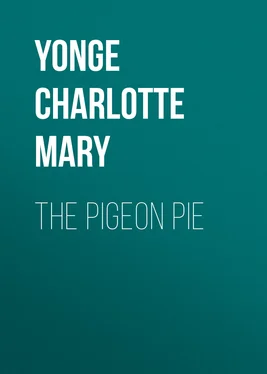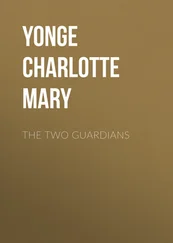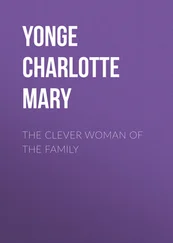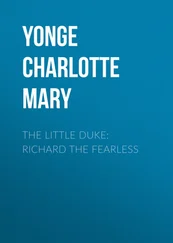Charlotte Yonge - The Pigeon Pie
Здесь есть возможность читать онлайн «Charlotte Yonge - The Pigeon Pie» — ознакомительный отрывок электронной книги совершенно бесплатно, а после прочтения отрывка купить полную версию. В некоторых случаях можно слушать аудио, скачать через торрент в формате fb2 и присутствует краткое содержание. Жанр: Альтернативная история, foreign_antique, foreign_prose, foreign_children, Исторические приключения, на английском языке. Описание произведения, (предисловие) а так же отзывы посетителей доступны на портале библиотеки ЛибКат.
- Название:The Pigeon Pie
- Автор:
- Жанр:
- Год:неизвестен
- ISBN:нет данных
- Рейтинг книги:5 / 5. Голосов: 1
-
Избранное:Добавить в избранное
- Отзывы:
-
Ваша оценка:
- 100
- 1
- 2
- 3
- 4
- 5
The Pigeon Pie: краткое содержание, описание и аннотация
Предлагаем к чтению аннотацию, описание, краткое содержание или предисловие (зависит от того, что написал сам автор книги «The Pigeon Pie»). Если вы не нашли необходимую информацию о книге — напишите в комментариях, мы постараемся отыскать её.
The Pigeon Pie — читать онлайн ознакомительный отрывок
Ниже представлен текст книги, разбитый по страницам. Система сохранения места последней прочитанной страницы, позволяет с удобством читать онлайн бесплатно книгу «The Pigeon Pie», без необходимости каждый раз заново искать на чём Вы остановились. Поставьте закладку, и сможете в любой момент перейти на страницу, на которой закончили чтение.
Интервал:
Закладка:
Charlotte M. Yonge
The Pigeon Pie
CHAPTER I
Early in the September of the year 1651 the afternoon sun was shining pleasantly into the dining-hall of Forest Lea House. The sunshine came through a large bay-window, glazed in diamonds, and with long branches of a vine trailing across it, but in parts the glass had been broken and had never been mended. The walls were wainscoted with dark oak, as well as the floor, which shone bright with rubbing, and stag’s antlers projected from them, on which hung a sword in its sheath, one or two odd gauntlets, an old-fashioned helmet, a gun, some bows and arrows, and two of the broad shady hats then in use, one with a drooping black feather, the other plainer and a good deal the worse for wear, both of a small size, as if belonging to a young boy.
An oaken screen crossed the hall, close to the front door, and there was a large open fireplace, a settle on each side under the great yawning chimney, where however at present no fire was burning. Before it was a long dining-table covered towards the upper end with a delicately white cloth, on which stood, however, a few trenchers, plain drinking-horns, and a large old-fashioned black-jack, that is to say, a pitcher formed of leather. An armchair was at the head of the table, and heavy oaken benches along the side.
A little boy of six years old sat astride on the end of one of the benches, round which he had thrown a bridle of plaited rushes, and, with a switch in his other hand, was springing himself up and down, calling out, “Come, Eleanor, come, Lucy; come and ride on a pillion behind me to Worcester, to see King Charles and brother Edmund.”
“I’ll come, I am coming!” cried Eleanor, a little girl about a year older, her hair put tightly away under a plain round cap, and she was soon perched sideways behind her brother.
“Oh, fie, Mistress Eleanor; why, you would not ride to the wars?” This was said by a woman of about four or five-and-twenty, tall, thin and spare, with a high colour, sharp black eyes, and a waist which the long stiff stays, laced in front, had pinched in till it was not much bigger than a wasp’s, while her quilted green petticoat, standing out full below it, showed a very trim pair of ankles encased in scarlet stockings, and a pair of bony red arms came forth from the full short sleeves of a sort of white jacket, gathered in at the waist. She was clattering backwards and forwards, removing the dinner things, and talking to the children as she did so in a sharp shrill tone: “Such a racket as you make, to be sure, and how you can have the heart to do so I can’t guess, not I, considering what may be doing this very moment.”
“Oh, but Walter says they will all come back again, brother Edmund, and Diggory, and all,” said little Eleanor, “and then we shall be merry.”
“Yes,” said Lucy, who, though two years older, wore the same prim round cap and long frock as her little sister, “then we shall have Edmund here again. You can’t remember him at all, Eleanor and Charlie, for we have not seen him these six years!”
“No,” said Deborah, the maid. “Ah! these be weary wars, what won’t let a gentleman live at home in peace, nor his poor servants, who have no call to them.”
“For shame, Deb!” cried Lucy; “are not you the King’s own subject?”
But Deborah maundered on, “It is all very well for gentlefolks, but now it had all got quiet again, ’tis mortal hard it should be stirred up afresh, and a poor soul marched off, he don’t know where, to fight with he don’t know who, for he don’t know what.”
“He ought to know what!” exclaimed Lucy, growing very angry. “I tell you, Deb, I only wish I was a man! I would take the great two-handled sword, and fight in the very front rank for our Church and our King! You would soon see what a brave cavalier’s daughter—son I mean,” said Lucy, getting into a puzzle, “could do.”
The more eager Lucy grew, the more unhappy Deborah was, and putting her apron to her eyes, she said in a dismal voice, “Ah! ’tis little poor Diggory wots of kings and cavaliers!”
What Lucy’s indignation would have led her to say next can never be known, for at this moment in bounced a tall slim boy of thirteen, his long curling locks streaming tangled behind him. “Hollo!” he shouted, “what is the matter now? Dainty Deborah in the dumps? Cheer up, my lass! I’ll warrant that doughty Diggory is discreet enough to encounter no more bullets than he can reasonably avoid!”
This made Deborah throw down her apron and reply, with a toss of the head, “None of your nonsense, Master Walter, unless you would have me speak to my lady. Cry for Diggory, indeed!”
“She was really crying for him, Walter,” interposed Lucy.
“Mistress Lucy!” exclaimed Deborah, angrily, “the life I lead among you is enough—”
“Not enough to teach you good temper,” said Walter. “Do you want a little more?”
“I wish someone was here to teach you good manners,” answered the tormented Deborah. “As if it was not enough for one poor girl to have the work of ten servants on her hands, here must you be mock, mock, jeer, jeer, worrit, worrit, all day long! I had rather be a mark for all the musketeers in the Parliamentary army.”
This Deborah always said when she was out of temper, and it therefore made Walter and Lucy laugh the more; but in the midst of their merriment in came a girl of sixteen or seventeen, tall and graceful. Her head was bare, her hair fastened in a knot behind, and in little curls round her face; she had an open bodice of green silk, and a white dress under it, very plain and neat; her step was quick and active, but her large dark eyes had a grave thoughtful look, as if she was one who would naturally have loved to sit still and think, better than to bustle about and be busy. Eleanor ran up to her at once, complaining that Walter was teasing Deborah shamefully. She was going to speak, but Deborah cut her short.
“No Mistress Rose, I will not have even you excuse him, I’ll go and tell my lady how a poor faithful wench is served;” and away she flounced, followed by Rose.
“Will she tell mamma?” asked little Charlie.
“Oh no, Rose will pacify her,” said Lucy.
“I am sure I wish she would tell,” said Eleanor, a much graver little person than Lucy; “Walter is too bad.”
“It is only to save Diggory the trouble of taking a crabstick to her when he returns from the wars,” said Walter. “Heigh ho!” and he threw himself on the bench, and drummed on the table. “I wish I was there! I wonder what is doing at Worcester this minute!”
“When will brother Edmund come?” asked Charlie for about the hundredth time.
“When the battle is fought, and the battle is won, and King Charles enjoys his own again! Hurrah!” shouted Walter, jumping up, and beginning to sing—
“For forty years our royal throne
Has been his father’s and his own.”
Lucy joined in with—
“Nor is there anyone but he
With right can there a sharer be.”
“How can you make such a noise?” said Eleanor, stopping her ears, by which she provoked Walter to go on roaring into them, while he pulled down her hand—
“For who better may
The right sceptre sway
Than he whose right it is to reign;
Then look for no peace,
For the war will never cease
Till the King enjoys his own again.”
As he came to the last line, Rose returning exclaimed, “Oh, hush, Lucy. Pray don’t, Walter!”
“Ha! Rose turned Roundhead?” cried Walter. “You don’t deserve to hear the good news from Worcester.”
“O, what?” cried the girls, eagerly.
Читать дальшеИнтервал:
Закладка:
Похожие книги на «The Pigeon Pie»
Представляем Вашему вниманию похожие книги на «The Pigeon Pie» списком для выбора. Мы отобрали схожую по названию и смыслу литературу в надежде предоставить читателям больше вариантов отыскать новые, интересные, ещё непрочитанные произведения.
Обсуждение, отзывы о книге «The Pigeon Pie» и просто собственные мнения читателей. Оставьте ваши комментарии, напишите, что Вы думаете о произведении, его смысле или главных героях. Укажите что конкретно понравилось, а что нет, и почему Вы так считаете.












